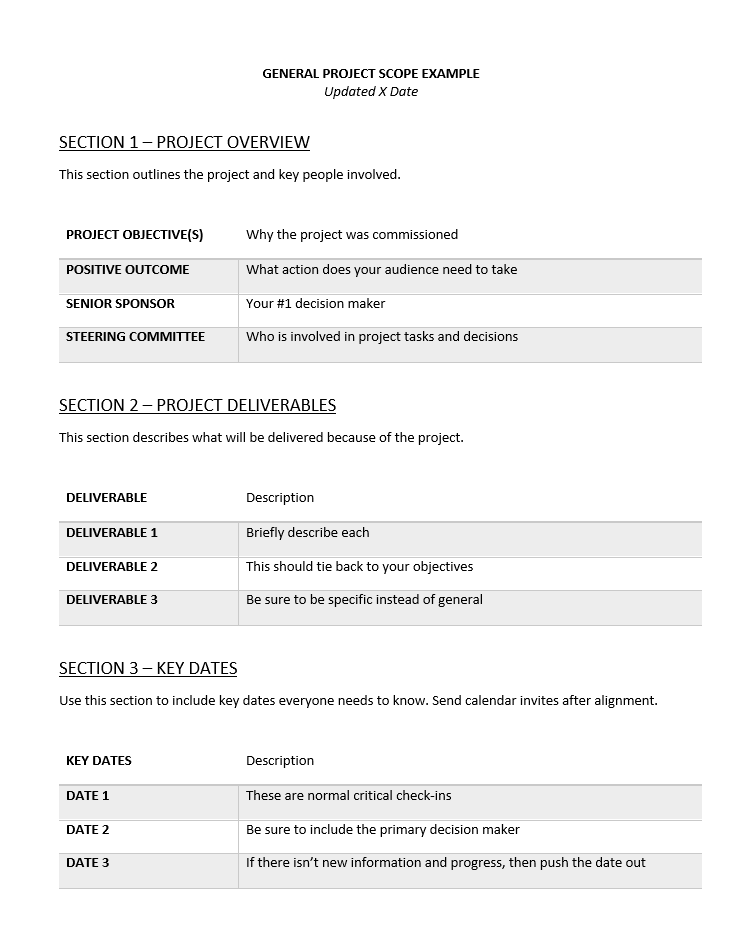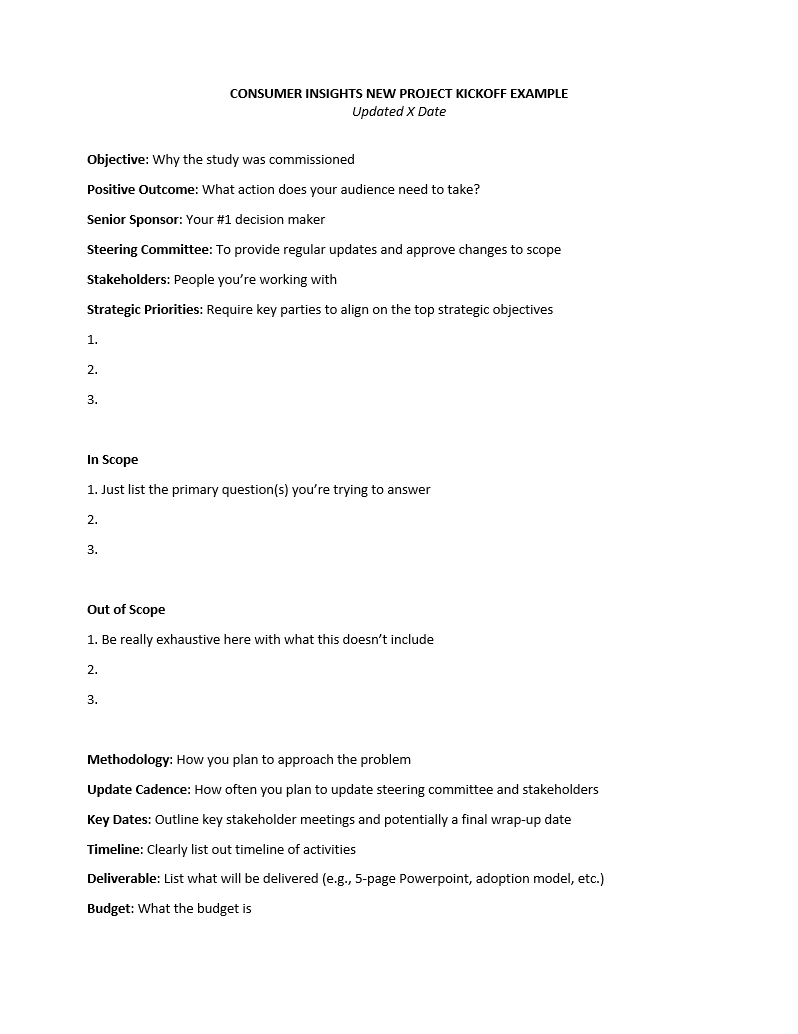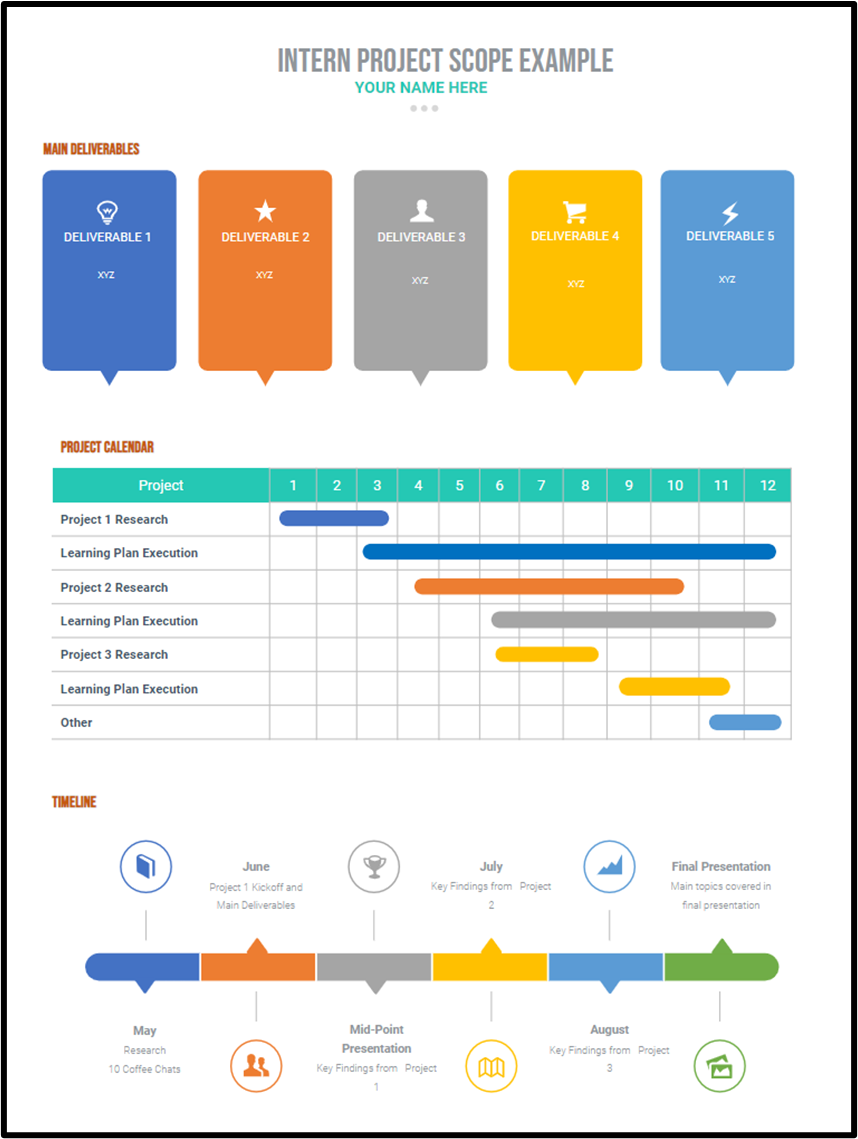The Worst Project I’ve Ever Worked On
Let me tell you about the worst project I ever worked on: I was assigned to work on a new and very large account, and they needed an annual marketing plan. My boss hadn’t ever done one before, and I was still new to the company. We were presenting in three weeks, and as you can imagine there was a lot involved. Millions of dollars, about 50 outside vendors, and everyone internally wanted to be included in the process.
I literally worked multiple 100-hour workweeks. I know it was 100 hours because my time was tracked and billed, much like a lawyer, in 15-minute increments. I worked and reworked and re-reworked the marketing plan. I remember one night getting some new pricing information from a vendor and just wanting to cry, since I’d have to rework everything again.
Three very long weeks later I presented the marketing plan and everything worked out. In hindsight, had I taken the time to create a project plan, divide out some work, and create some timelines I could have saved myself a mountain of stress (and worked a much more reasonable schedule).
As a side note: If anyone ever complains about working a lot I think back to this time. When you work literally every waking moment there’s just things you can’t do, from getting a haircut to eating meals. The pressure is indescribable. And while I’ve had some intense periods in my career since then (e.g., helping take a company public), I learned both the importance of taking care of myself and the value of a project plan. The following advice comes from a place of experience.
Projects = Business
Projects are the lifeblood of business. Most meetings are tied to projects, we’re often measured on the success of our projects, and you go out as a team for drinks once a big project is finished. The key to delivering a project successfully is to nail the project scope, which is essentially outlining all the parts of a project. Project scoping is essential to starting off on the right foot and ensuring a project delivers on time, on budget, and most importantly on its objective.
A few things I have learned about project scopes:
- You don’t need to be an organized or attention-to-detail person to successfully run a project. You just need to be able to follow a project plan.
- Nearly everything requires a project plan. Just create one, even if it feels like overkill. One of the main benefits of creating one is thinking through the aspects of the project.
- Many companies have project management tools, such as Asana or Monday. These are helpful for assigning tasks to people, setting deadlines, etc. In my experience these work better for teams (e.g., a marketing team) than managing projects throughout a whole company.
Do you need a good project scope template? Three are included here, and can be used in a variety of business situations:
- General Project Scope – this can be used to kick off most types of projects
- Consumer Insights Project Scope – this is helpful in discovery projects
- Intern Project Scope – obviously helpful for internships or for projects with finite time periods
General Project Scope Example
This standard project scope example could be used for a wide array of projects. It includes the critical sections of a project overview, project deliverables, key dates, and a budget.
A temptation in business (especially when moving fast) is to not formalize projects, instead relying on meeting notes and ad-hoc check-ins. This often ends in disaster as you won’t think through all of the parts of a project. In the example in the beginning of this article, had I created a project plan I would have seen the importance in collecting vendor prices by a certain date and locking the presentation after that.
Taking the time to build a project scope upfront will save you time in the long run, uplevel your professionalism, and ensure a positive outcome. You are free to use this project scope and adapt it to your needs.
General Project Scope Example Free Download Link Here
(Shared Google Drive, Download Only)

Consumer Insights Project Scope Example
Consumer Insights is where you do discovery work. It’s called a number of different things by industry, but the essence is that your project is to discover new information. This is a standard consumer insights project scope example, which includes all of the critical pieces of any learning plan.
Most consumer insights professionals like to dive into methodology and deliverables, but the most overlooked piece is internal alignment and senior sponsorship, so this includes portions on that. Also I have found that great projects clearly define what is out-of-scope. This avoids scope creep and encourages you to have discussions early on. Even if you don’t work in consumer insights, this template is helpful in considering the internal and external parts of a project.
Consumer Insights Project Scope Example Free Download Link Here
(Shared Google Drive, Download Only)

Intern Project Scope Example
This is a 3-month calendar scope document, with each week laid out within a Gantt chart. It lists the main deliverables, as well as big rocks that will be tackled.
I would encourage any intern to include both professional and personal goals. Professional goals could include your main projects and key dates. Personal goals could include 1:1 meetings with different people in the company, training, etc. Interns will be more successful if they regularly update this document throughout their internship and use it in their manager check-ins.
Intern Project Scope Example Free Download Link Here
(Shared Google Drive, Download Only)

Beyond Project Scopes
Project scopes are just so helpful and I firmly believe everyone should use them. When I was an intern it was invaluable to have a document I regularly updated and could share with anyone I met, and as I have progressed in my career they are helpful in understanding the nuances of a project and ensuring you’ve thought through all the components.
Overall there are so many benefits of successfully managing projects – you won’t have to work those 100-hour workweeks, it’ll progress your career, stakeholder management is clear, and you’ll better hit deadlines and deliverables.


